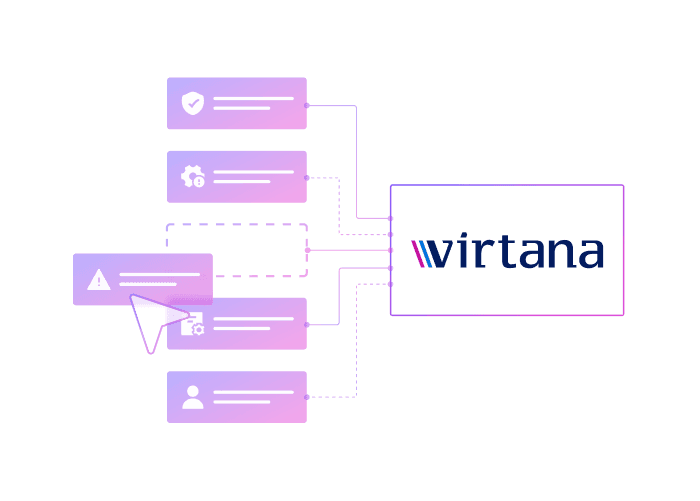Case Study
Challenges
Creating Seamless Notification System
Designing and maintaining a tool that allows for managing an extensive transactional notifications system. The communication required sending of various notifications (for example request for password reset, placing an order, upcoming course deadline) directed to different recipient groups within other departments of the University (admissions, various faculties, administration, marketing).
Making Message Management Effective
Creating unification for message templates. Establishing control over access to message configuration. Need for personalising messages according to the department or recipient. Personalisation by segmentation of recipient groups (students and employees of various categories, all in general, all in one location, etc.), email disclaimers, personal titles, buttons, and many more.
Reducing Repetitive Tasks
Automating admissions and e-commerce processes to make them less time-consuming. Managing marketing efforts and preferential channels to succeed in a digital landscape that is changing quickly.
Solution
The University was engaged in communication with various groups of stakeholders across multiple campuses and programs. Each of these units was sending emails, resulting in a different structure of information and its overload. Implementing marketing automation allowed the University to reach the right individuals with relevant communications at the right time.
Solution
Data
integration
Two separate environments (Business Units) have been created within Marketing Cloud to enable distributed data integration. This integration is achieved through the use of a standard tool called Marketing Cloud Connector, which connects the Salesforce.com platform with Marketing Cloud but also API integration is used for selected scenarios.
Dynamic
Senders
The senders (Sender Profiles) of each message are dynamically allocated based on the specific process. Different names and sender addresses (FromName) are utilised for each sender.
Message
Management
Business users from marketing support departments are granted access to the platform with appropriate permissions. This ensures that the structure for approving and managing message deliveries is maintained.
Process
Automation
The automated processes (Automation Studio) and delivery processes (Journey Builder) are categorised according to their purpose and main theme. This allows for easier organisation and management of these processes.
360-Degree
View
Campaign results, such as open rate, click rate, and send rate, are displayed in a consolidated manner using charts and statistics. Additionally, this information is transmitted at an individual level to the CRM system, enabling a comprehensive 360-degree view of the campaigns performance.
Real-Time
Data
The delivery platform maintains continuous synchronisation with data, enabling processes to carry out deliveries using real-time information from various sources like the CRM system, website, and surveys.
Efficient
Segmentation
Data segmentation is performed within Marketing Cloud using SQL automation (SQL Queries). This allows the data to be prepared in smaller tables known as Data Extensions, which serve as sources for delivering specific messages to end-users.
API
Integration
For the immediate processing of transactional messages, the necessary data is provided through an application programming interface (API). This ensures that messages can be handled with minimal delay, almost in real-time.
Dynamic
Personalisation
To make the messages more engaging and relevant, the content incorporates full personalisation using AMPscript. This dynamic scripting language enables the inclusion of recipient-specific information, ensuring that each message resonates with its intended audience.
Visual Assets
Storage
Images and marketing materials are stored in a shared repository within the platform, facilitating easy reuse and accessibility. This centralised storage system streamlines the management and retrieval of visual assets, promoting efficient and effective marketing practices.
Template
Consistency
The messages utilise a standardised template that is created and stored in a shared location known as the Shared Content Studio. This allows for consistency across different messages. Moreover, within each specific process, customised content versions can be inserted into this shared template, ensuring flexibility and personalisation.
Content
View
The message content can be delivered from external sources through an API or can be prepared and stored in centralised configuration files. This approach provides the platform administrator with a comprehensive and unified view, making it easy to edit and correct content errors automatically.
Unified
Data Storage
The data is stored in a consistent and unified manner. This means that as new information is collected over time, it is aggregated and associated with the same recipient.
Marketing
Permissions
Marketing consents and preferences are captured and managed using CloudPages, and their data is seamlessly integrated into the CRM system through Server-Side JavaScript (SSJS). This ensures that marketing permissions and preferences are effectively processed and synchronised across platforms.
Transactional
Notifications
Notifications regarding status changes, missing documents, and purchases for students, employees, candidates, internship providers, and interns are handled. This involves the implementation of two APIs, one for the new standard and another for the legacy system. Available solutions from the Marketing Cloud Platform are utilised for seamless integration. Notifications are triggered externally (e.g., website or CRM system) and delivered to the recipient’s inbox within 10-25 seconds, ensuring efficient fulfilment of the University requirements.
Automated Marketing
Messages
Automated marketing messages are managed through the design and implementation of processes. Data segmentation using SQL or filters, content selection based on script-level logic or AI (utilising Einstein), and timed message delivery are carried out. This enables effective management of marketing campaigns to address various customer experience needs on the e-commerce website, such as managing abandoned carts and providing personalised recommendations.
Manual Marketing
Messages
A user-friendly solution is offered for manual marketing messages. The Email Studio allows consistent recipient selection and message composition, ensuring efficient and streamlined manual marketing efforts.
Looking for
trusted partner?
Successful Salesforce projects begin with thorough analysis and detailed design.
Outcomes
Cost
Reduction
Repetitive processes are eliminated, leading to decreased costs in handling transactional notifications. The system automatically sends messages without any action needed from platform administrators. Within 30 days, the system sent over 6000 messages without administrative intervention.
Lower Marketing
Campaign Costs
Once designed and implemented, a recurring campaign is reused though eliminates expenses associated with repetitive marketing campaigns.
Enhanced Recipient
Awareness
Messages present personalised and relevant information, leading to increased awareness among recipients. The high ratio of Total Opens to Total Unique Opens indicates active user engagement and their tendency to revisit messages for needed information.
Consistent and
Professional Messaging
Messages are designed to maintain consistency, professionalism, and non-intrusiveness. This approach ensures user satisfaction, keeping unsubscribe rates below 1%.
Targeted Audience
Research
Various market research and preference studies can be conducted based on department or interest, resulting in a very high delivery rate of 97.58%.
Strengthened
Institutional Image
Credible and reliable communication during stakeholder interactions greatly enhances the institution’s reputation.
Increased
Sales
Direct marketing campaigns, such as addressing abandoned carts, prove effective with conversion rates reaching up to 24%.
Your university may benefit from this solution if
01
You have a large student/customer population, multiple campuses, branches, or departments.
02
You need personalised and targeted communication.
03
You have an extensive transactional notification requirement.
04
You lack automated marketing campaigns, and you have a lot of manual marketing efforts.
05
You need cost reduction.
06
You need improved recipient awareness.
07
You need consistent and professional messaging.
08
You lack targeted audience research.
09
You have a goal to strengthen your institutional reputation and increase sales.
Want to work with us?
Successful Salesforce projects begin with thorough analysis and detailed design.
Let’s talk about your needs
Incredible care for the client’s needs, a wonderfully supportive implementation team full of willingness to help and patience. Thanks to their commitment and knowledge the process ran as smoothly as possible. It was (and still is) a pleasure to work with.
Kamila Dryjańska
Head of Admissions
Case Study
Virtana: Salesforce Managed Services
Managing day-to-day Salesforce operations


